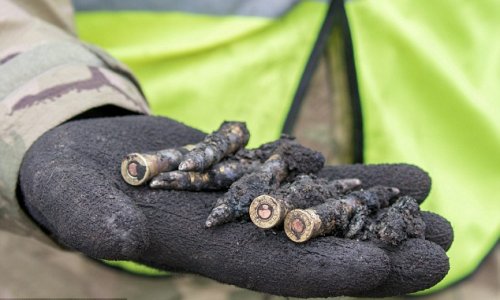Disgustingly polluted waters where 1,400 Olympic athletes will swim and sail during the Rio Olympic games will expose them to dangerous diseases, a new study has revealed.
The water, which is thick with untreated human sewage, contains levels of bacteria and viruses that would cause them to be shut down as a severe health risk in many other countries.
Brazilian authorities had promised to clean up the waterways, filled with waste from toilets and showers from homes in Rio De Janeiro, but experts claims there is no longer time.
More than 350,000 tourists could also be exposed to danger on the beaches, and experts are warning foreigners to get vaccinated against Hepatitis A and typhoid.
Athletes who ingest just three teaspoons of the water have a 99 per cent chance of being infected with pathogens, which could put them out of action for four days, crushing their Olympic dreams.
Sailors from the Austrian Olympic team have already tested the water and contracted bugs that halted training.
Team GB's sailors have also expressed their concerns about the horrifically contaminated water.
The Associated Press investigation found dangerously high levels of viruses and bacteria from sewage in venues where athletes will compete in the 2016 Olympic and Paralympic water sports.
In the first independent comprehensive testing for both viruses and bacteria at the Olympic sites, four rounds of tests were conducted, starting in March.
The results have alarmed international experts and dismayed competitors training in Rio, some of whom have already fallen ill with fevers, vomiting and diarrhea.
These ailments could knock an athlete out for days, potentially curtailing Olympics dreams and the years of hard training behind them.
'This is by far the worst water quality we've ever seen in our sailing careers,' said Ivan Bulaja, a coach for the Austrian team, which has spent months training on the Guanabara Bay.
'I am quite sure if you swim in this water and it goes into your mouth or nose that quite a lot of bad things are coming inside your body.'
Sailor David Hussl has already fallen ill.
'I've had high temperatures and problems with my stomach,' Hussl said. 'It's always one day completely in bed and then usually not sailing for two or three days.'
Water pollution has long plagued Brazil's urban areas, where most sewage isn't collected, let alone treated.
In Rio, much of the waste runs through open-air ditches to fetid streams and rivers that feed the Olympic water sites and blight the city's picture postcard beaches.
Brazilian authorities pledged that a major overhaul of the city's waterways would be among the Olympics' most significant legacies.
But the stench of raw sewage still greets travelers arriving at Rio's international airport.
The state government has already admitted it will not be able to meet its original target of reducing pollution in the bay by 80 per cent.
Next week marks a year to go to Rio 2016 and Bach said the preparations were on course but challenges remained.
International Organising Committee President Thomas Bach, speaking after an IOC executive board meeting in Kuala Lumpur, said: 'We have the issues which we discussed today again, the cleaning of the bay there were measures that have been presented and are two-fold: those which are starting already now and others which will be applied just before and during the Olympic Games to make sure that there is the safety and the health of the athletes.
'On the one hand we see great progress, on the other there is no time to lose.
'But given the fact that the organising committee has acknowledged its challenges we are very confident we will have a great Games in one year because acknowledging challenges is the first and most important step to overcoming them.'
Prime beaches remain deserted because the surf is thick with putrid sludge, and periodic die-offs leave the Olympic lake littered with rotting fish.
(dailymail.co.uk)











www.ann.az
Follow us !











